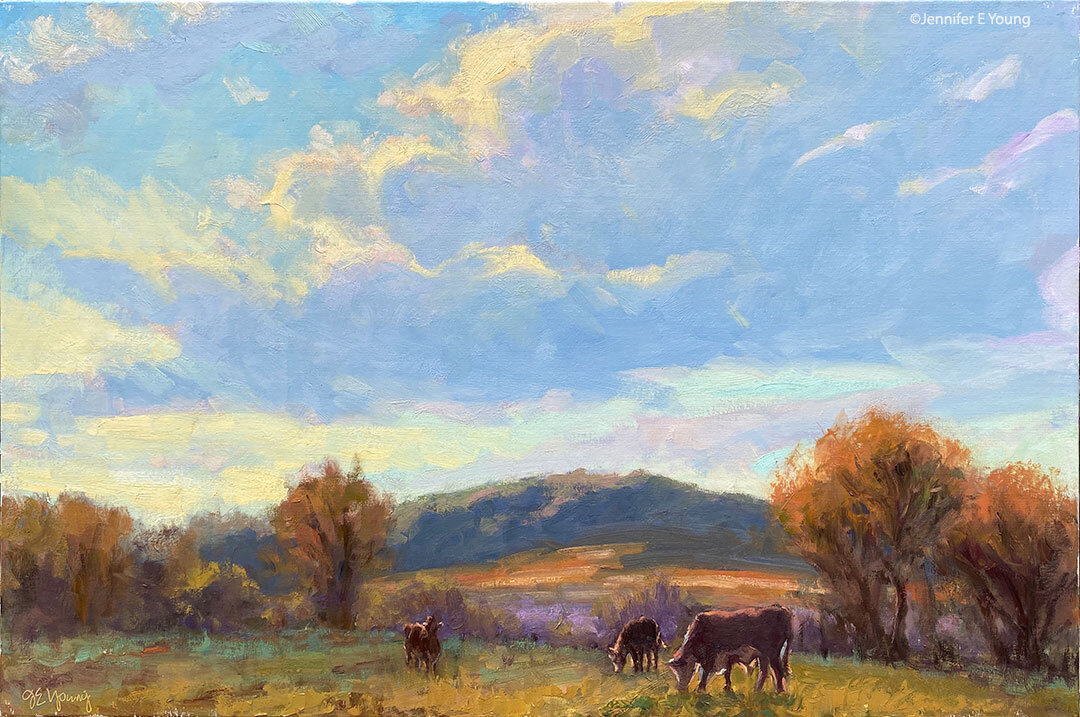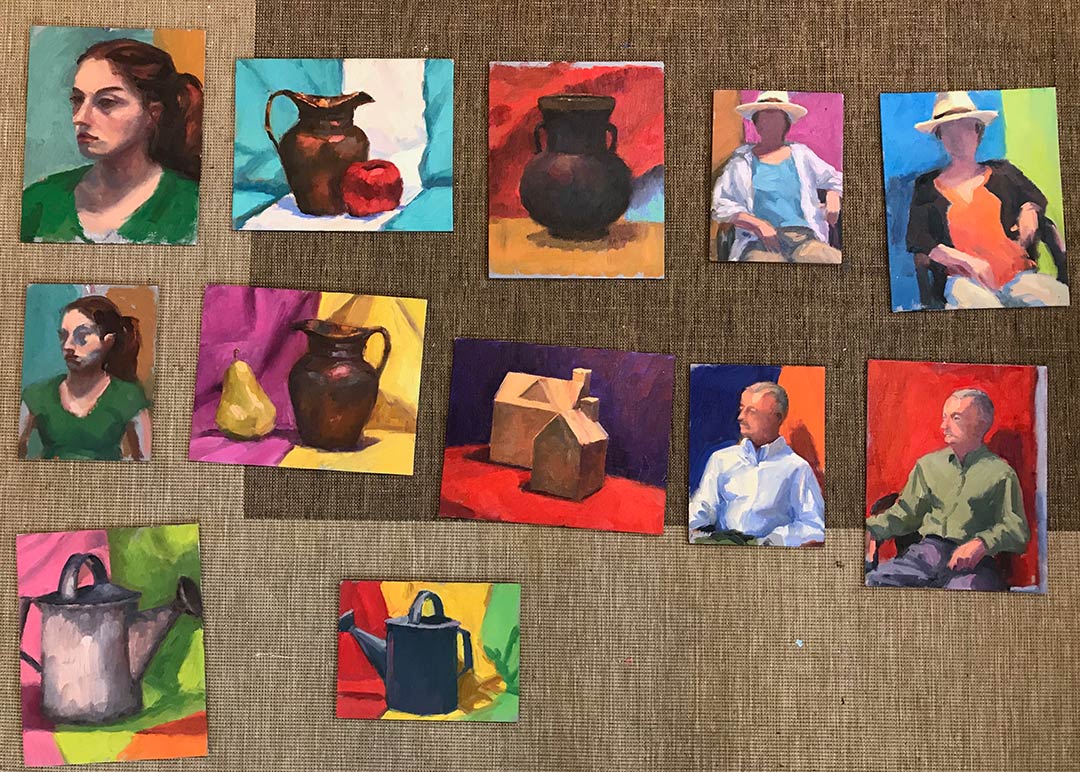Landscape Values
/My mom was here visiting with me recently and I asked her about a watercolor class she had signed up for not long ago. "It wasn't so hot," she said. "We didn't learn much of anything. The teacher just kept saying 'remember your values'. We didn't know what we were doing, and we didn't know what 'values' she was talking about!" Â
I had to laugh. Family values? Stock values maybe? I guess it's understandable that someone who has been involved in art and painting for a while would assume that everyone knows what "values" are in painting. But not everyone has that clear understanding, so I thought I'd write some of what I know about values here and in a subsequent post or two. (Mom, if you're reading, take notes. Pop quiz later!)
Values in painting are essentially the range of lights and darks in a composition. Seeing values in black and white is somewhat easier than seeing values in color, so a lot of times it is beneficial to create a value sketch of your subject first if you are having trouble discerning how light or dark something should be.
The trouble with values in color is that you now have color temperature thrown into the mix and judging values can be somewhat more confusing, especially when painting en plein air. What's lighter, the sky or the ground? The rooftops or the side of that bright yellow building? Understanding a little bit about how the light plays across a landscape can help to create a more convincing scene.Â
That is why creating value studies before you jump into painting can be very helpful. Here is a very quick value study I did of a Lake Como scene I am getting ready to paint. I don't always do this, but for more complicated scenes it can be helpful:

This little study will help me to internalize my lights and darks so that I can "remember my values" when I start my work with color.
Tags: art painting landscape painting artist plein air Italy travel











